USA Department of Neurosurgery Faculty
Academic Faculty
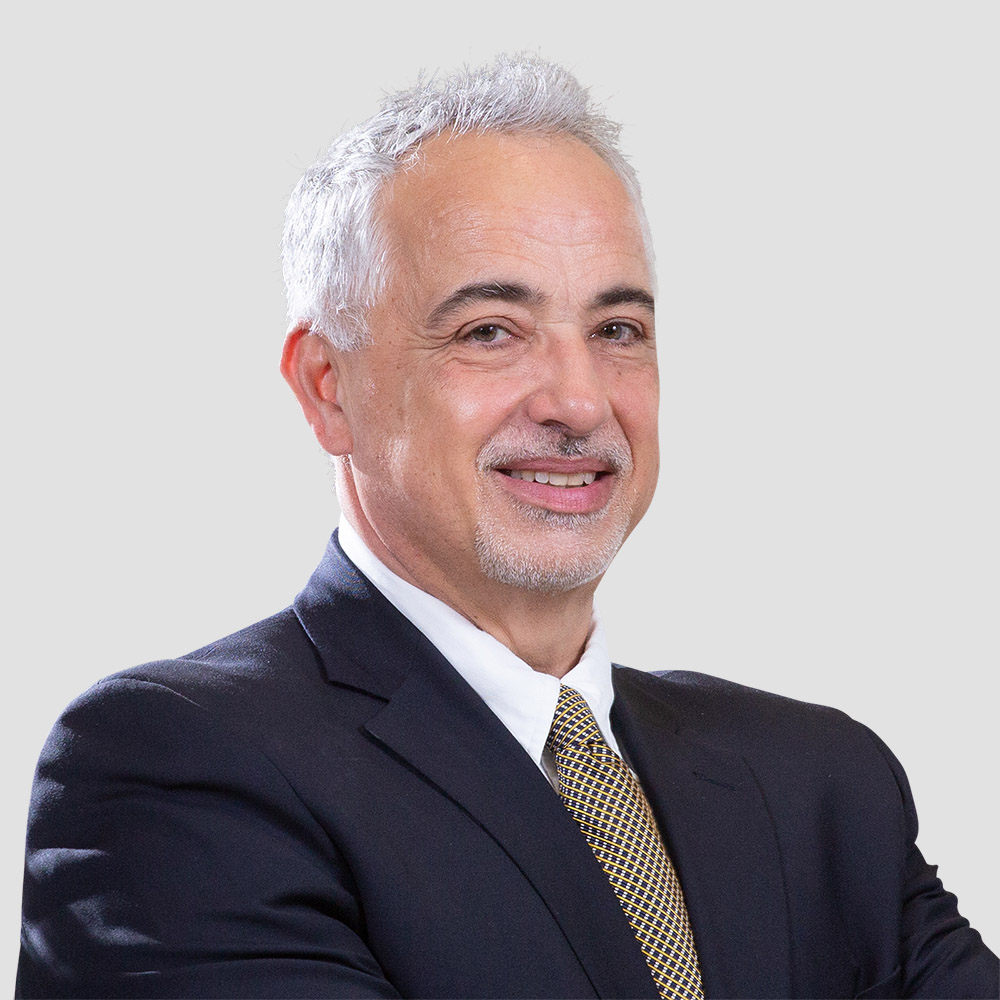
Anthony M. Martino, M.D., F.A.C.S.
Chair and Professor of Neurosurgery
Dr. Anthony M. Martino joined the Department in 2005 as Associate Professor of Neurosurgery and became Interim Chair on April 1st, 2011. He became Chair in 2012.
His special interests are the care and treatment of pediatric and adult neurosurgery, head injury, spinal injury, compression fractures and osteoporosis.
Born in Zagarise, Italy, Dr. Martino speaks fluent Italian. He earned his medical degree from Catholic University of the Sacred Heart in Rome, Italy. Dr. Martino completed his internship at Columbus Hospital in Chicago and his residency at the State University of New York in Syracuse, New York. In addition, he completed a fellowship at the University of California in San Francisco.
Prior to his appointment at USA, he was in private practice at the Harbin Clinic in Rome, Georgia. He has served on the medical faculty at the University of California at San Francisco, Wayne State University School of Medicine and the Dartmouth Medical School.
Dr. Martino is a member of the American Association of Neurological Surgeons, the International Society of Pediatric Neurosurgery and the Neurosurgical Society of America.
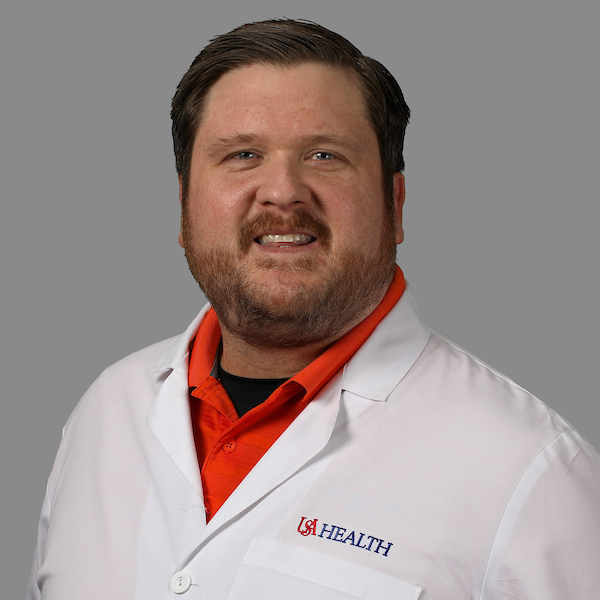
John Amburgy, M.D.
Director of Neuro Science ICU
Assistant Professor of Neurosurgery
Several life experiences shaped Dr. Amburgy’s decision to specialize in neurosurgery. Early in his life, his mother was diagnosed with multiple inoperable brain tumors. At that time, the options that offered the most hope were considered experimental. She became among the earliest group of patients in the U.S. to undergo stereotactic radiosurgery, which added 30 years to her life. The treatment is now considered the standard of care for small metastatic brain tumors.
A three-sport athlete in high school and a collegiate football player at Princeton University, Amburgy maintains his passion for sports. In college, his roommate and teammate was severely injured during football practice. Watching his roommate make a full recovery over the next several months inspired Dr. Amburgy to treat others with sports-related injuries.
Dr. Amburgy earned his medical degree from the Medical College of Georgia in Augusta, Georgia. He completed his residency in neurological surgery at the University of Alabama at Birmingham, and fellowships in neurotrauma, neurocritical care and sports neurosurgery at the University of Pittsburgh in Pittsburgh, Pennsylvania.
While in Pittsburgh, Dr. Amburgy was mentored by neurosurgeons for the NFL’s Pittsburgh Steelers. With the invaluable experience he gained working on the sidelines of Steelers practices and games, he hopes to continue to make the game safer for athletes. His expertise is neurotrauma, neurocritical care, spinal cord pathologies and sports neurosurgery.
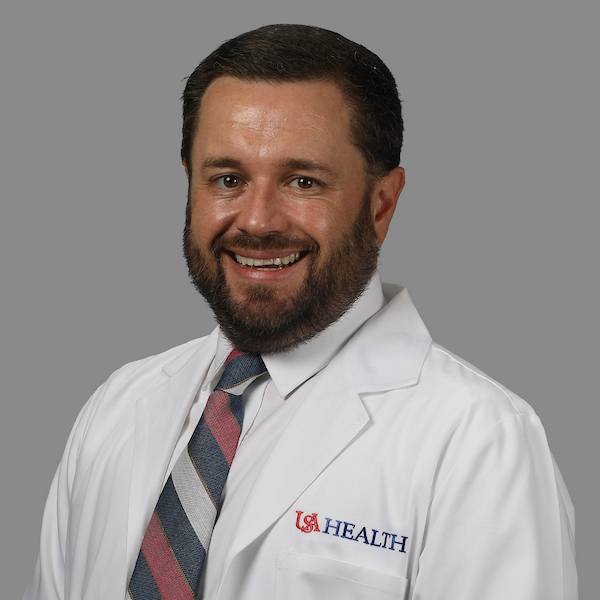
Marc Manix, M.D., FAANS
Assistant Professor of Neurosurgery
Marc Manix, M.D., FAANS., is a neurosurgeon specially trained in endoscopic spine surgery with extensive experience in treating level I trauma cases.
His surgical interests lie in oncology, spine, trauma and critical care medicine. Manix is skilled in spinal surgery with more than 2,000 operations performed for trauma, degenerative conditions, deformity and complex spine, and is proficient in minimally invasive techniques. He has completed more than 200 craniotomies for tumors and has comprehensive training in the management of trauma and critically ill patients.
Manix said he chose to practice at an academic system because he believes it is the best fit for his personality and the type of work he enjoys, which is a breadth of cases and the opportunity to teach.
Manix has been interested in the field of neurosurgery since he was young, his fascination growing the more he learned.
Conditions treated by Manix includes spinal stenosis, degenerative spine or disc disease, spinal cord injury, spinal fractures, Chiari malformation, brain cancers, hydrocephalus, intracranial hematoma, traumatic brain injuries, and carpal tunnel syndrome, among others.
Manix graduated from medical school at Tufts University School of Medicine in Boston, Massachusetts, and completed his neurosurgery residency at Louisiana State University/LSU Health in Shreveport, Louisiana.
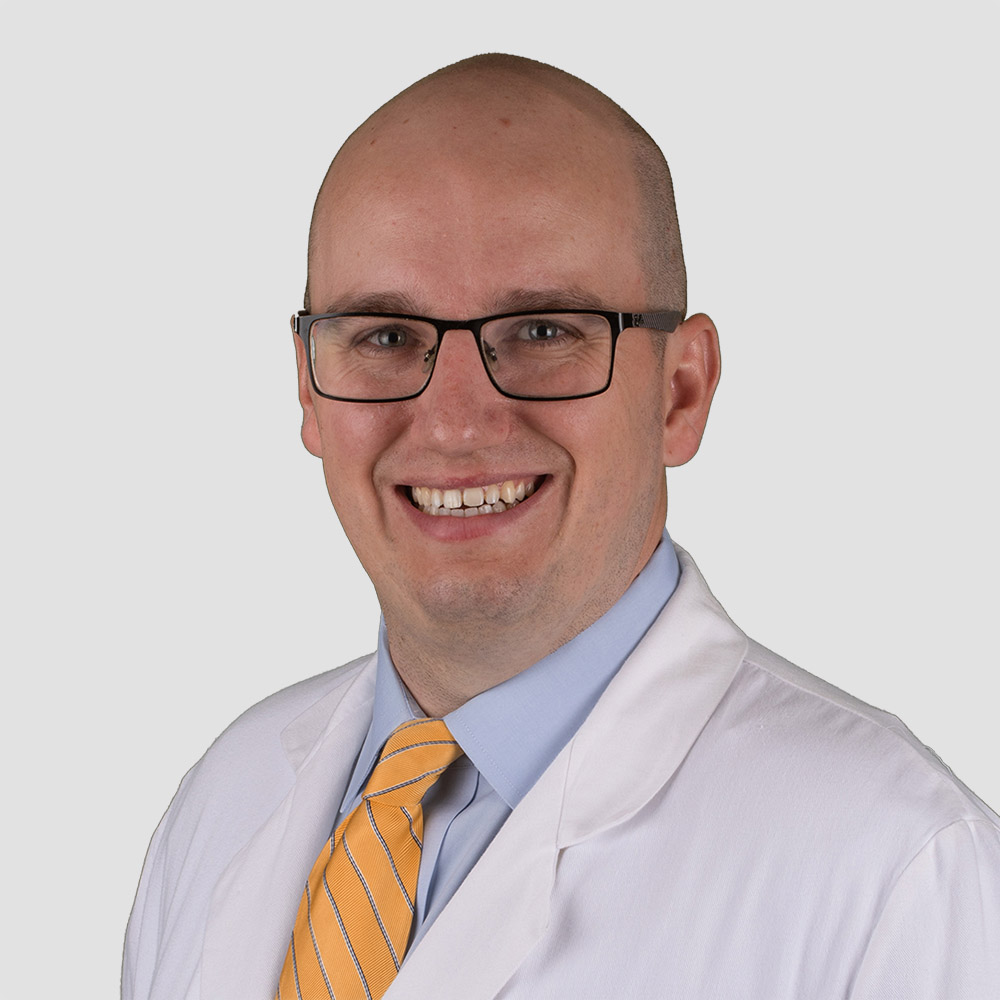
Richard Menger, M.D., M.P.A
Vice Chair and Associate Professor of Neurosurgery
Chief of Complex Spine Surgery
Director of the USA Health Spine Institute
Richard Menger, M.D., M.P.A, is a fellowship-trained neurosurgeon serving as Chief of Complex Spine Surgery at the USA Health. He has a specific focus on complex spinal reconstructions for spinal deformity in children and adults. He performs minimally invasive spinal procedures (MIS) and has a special expertise in the entire spectrum of state-of-the-art surgical and conservative management of pediatric scoliosis.
Trained in neurological and orthopedic spine surgery, he can assess patients from an interdisciplinary perspective. As a neurosurgeon, he completed the prestigious Advanced Pediatric Spinal Deformity Orthopedic Fellowship at Columbia University Medical Center in New York under the direction of Michael Vitale M.D., M.P.H., Richard Anderson M.D., and Lawrence Lenke M.D. During his neurosurgery residency at LSU in Shreveport, La., he received additional training with an enfolded fellowship in pediatric spinal deformity at Shriners Hospital for Children.
He is an honors graduate of Cornell University where he played four years of Division I rugby. He completed medical school with honors at Georgetown University School of Medicine where he was elected to the Alpha Omega Alpha Honor Society and received the Barbara Bregman PhD award as the top graduate in neuroscience. To further his research mission, he received a Master of Public Administration (MPA) from the Harvard Kennedy School of Government where he was awarded the Hale Champion Public Service Fellowship.
His research focuses on operative techniques, clinical outcomes, and the intersection of policy and economics on the delivery of spine surgery. He has authored numerous scientific papers in academic journals and is the lead editor of the textbook The Business, Policy, and Economics of Neurosurgery. His op-ed/policy work has been published in the Wall Street Journal, Forbes, Navy Times, the Hill and others. He has a joint appointment as Assistant Professor of Political Science at the University of South Alabama.
He enjoys being on the water and spending as much time as possible with his wife and three daughters. He also serves as a Lieutenant Commander in the United States Navy Reserve.
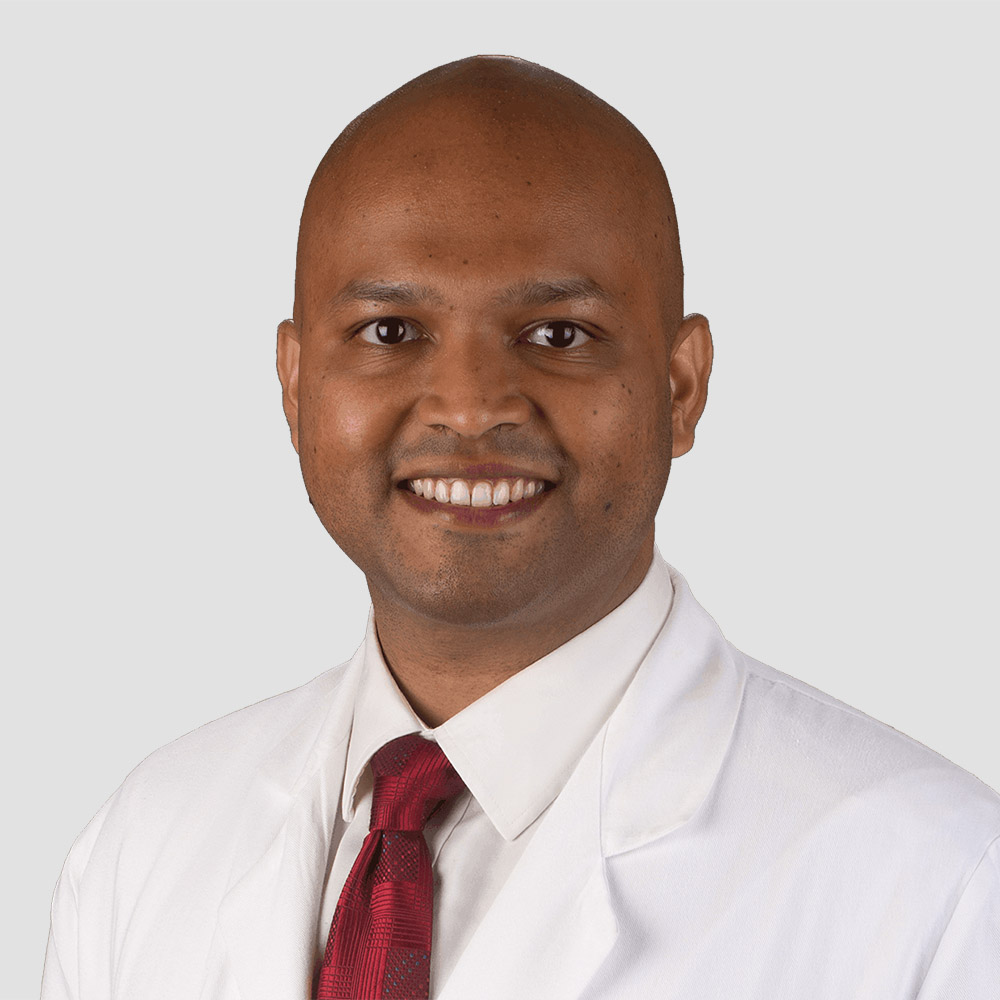
Jai Thakur, M.D.
Chief of Minimally Invasive Cranial & Skull Base Neurosurgery
Director of the Skull Base and Neuro-Oncology Fellowship
Director of Neurosurgery Education
Associate Professor of Neurosurgery
Jai Deep Thakur, M.D., is a fellowship-trained neurosurgeon who is specialized in the field of endoscopic and minimally invasive keyhole cranial surgery. He did two years of research fellowship in skull base neurosurgery at Louisiana State University (LSU) and University of Arkansas Medical Sciences, following which he completed his residency training in Neurosurgery at LSU. He then did his fellowship training in Minimally Invasive Cranial and Skull base Neurosurgery at the Pacific Neuroscience Institute-John Wayne Cancer Institute, Santa Monica, California.
Given his clinical and research expertise in the neurosurgical community, he is the director of minimally invasive cranial and skull base neurosurgery and heads neurosurgery education at University of South Alabama.
His focus is taking care of patients with brain tumors (including pituitary tumors, skull base tumors, primary/metastatic tumors) and cerebrovascular diseases like aneurysm, vascular malformations, sickle cell disease and Moyamoya disease, which potentially can cause strokes. Additionally, he specializes in managing medically refractory facial pain/trigeminal neuralgia, hemi-facial spasm and spontaneous skull base CSF leaks.
Dr. Thakur has published over 50 peer reviewed scientific papers and has presented over 60 abstracts at national/international meetings. His research has been cited over 800 times in the medical community.
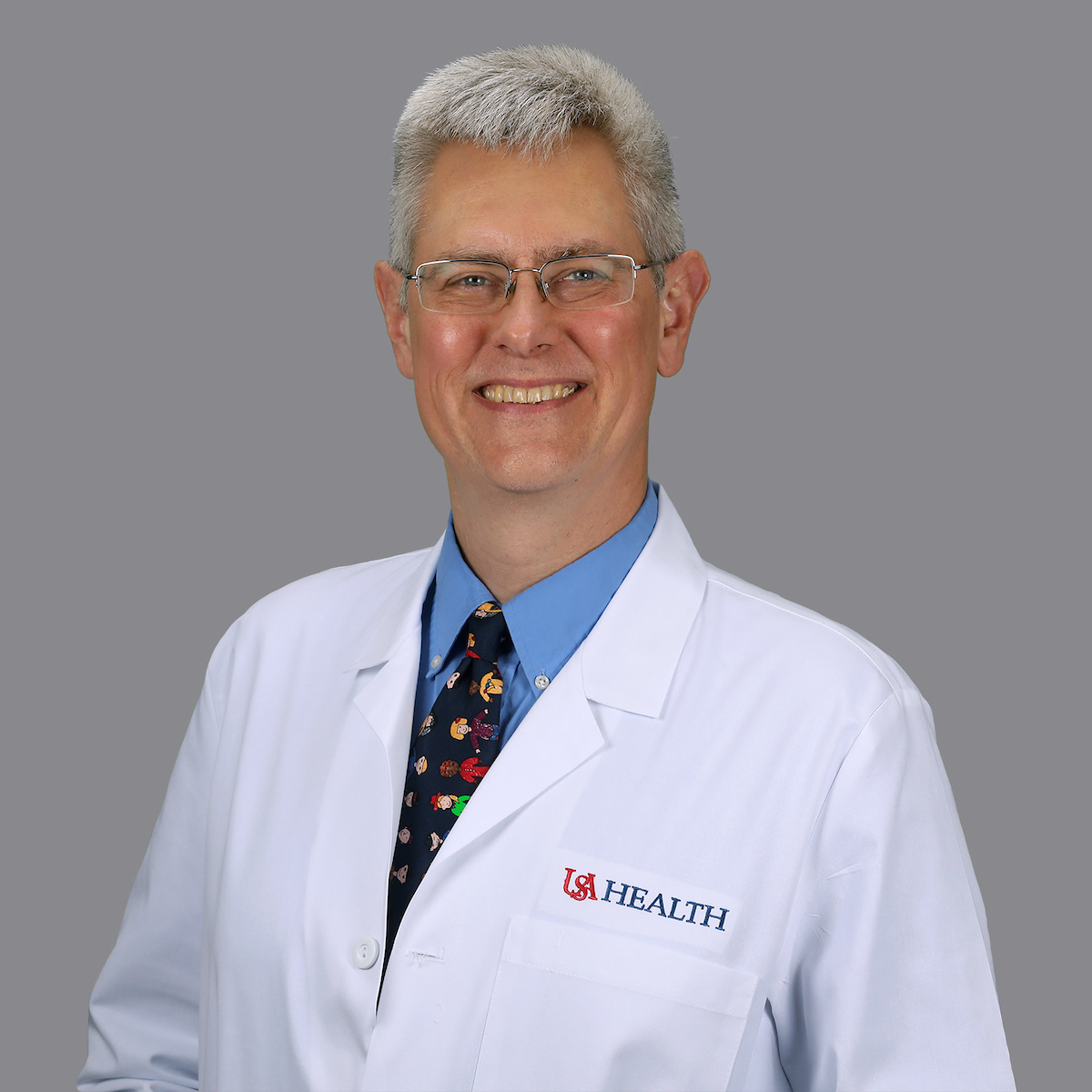
Matthew Pearson, M.D.
Chief of Pediatric Neurosurgery
Associate Professor of Neurosurgery and Pediatrics
Matthew Pearson, M.D., is a board-certified pediatric neurosurgeon and serves as an associate professor of neurosurgery at the Whiddon College of Medicine.
During his tenure at Vanderbilt University as an assistant professor of pediatric neurological surgery, Pearson developed two programs at Vanderbilt Children’s Hospital: the pediatric neuro-oncology program – treating approximately 45 operative brain and spinal cord tumors per year – and the multi-disciplinary pediatric surgical epilepsy program – offering subdural grid electrode mapping, hemispherectomy and vagus nerve stimulation.
Pearson also developed the comprehensive pediatric neurosurgery program at Sacred Heart Children’s Hospital in Pensacola, Florida. This program treats all aspects of neurosurgical issues for pediatric patients in the Florida panhandle.
He earned a medical degree from Johns Hopkins University School of Medicine in Baltimore, Maryland. After an internship in general surgery at Vanderbilt University Medical Center in Nashville, Tennessee, he completed his residency in neurological surgery at Vanderbilt University Medical Center. His fellowship in pediatric neurosurgery was completed at the University of Texas Southwestern Medical Center in Dallas.
He is double board-certified by the American Board of Neurological Surgery and the American Board of Pediatric Neurological Surgery.
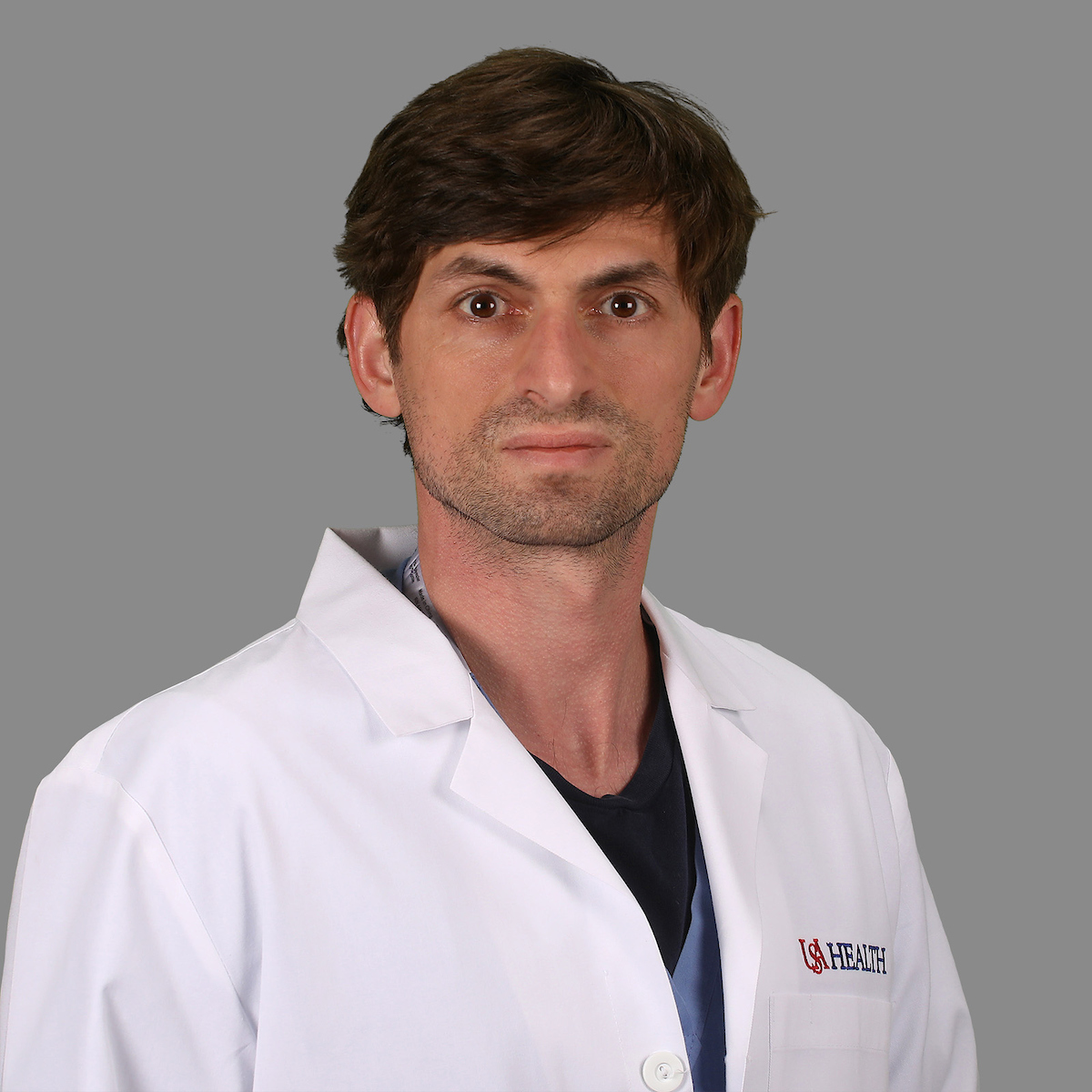
Andrew Romeo, M.D.
Assistant Professor of Neurosurgery
Andrew Romeo, M.D., is board certified in neurosurgery by American Board of Neurological Surgeons. He received his doctor of medicine degree from the University of Alabama at Birmingham School of Medicine in Birmingham, Alabama. Staying at UAB, he completed his neurosurgery residency, followed by a stereotactic and functional neurosurgery fellowship. He has multiple published research articles and is a member of the Alpha Omega Alpha Society. Prior to his arrival at USA Health, Romeo served as a neurosurgeon at the Denver DBS Center, learning novel techniques in addition to establishing an epilepsy surgery program at Centura Health.
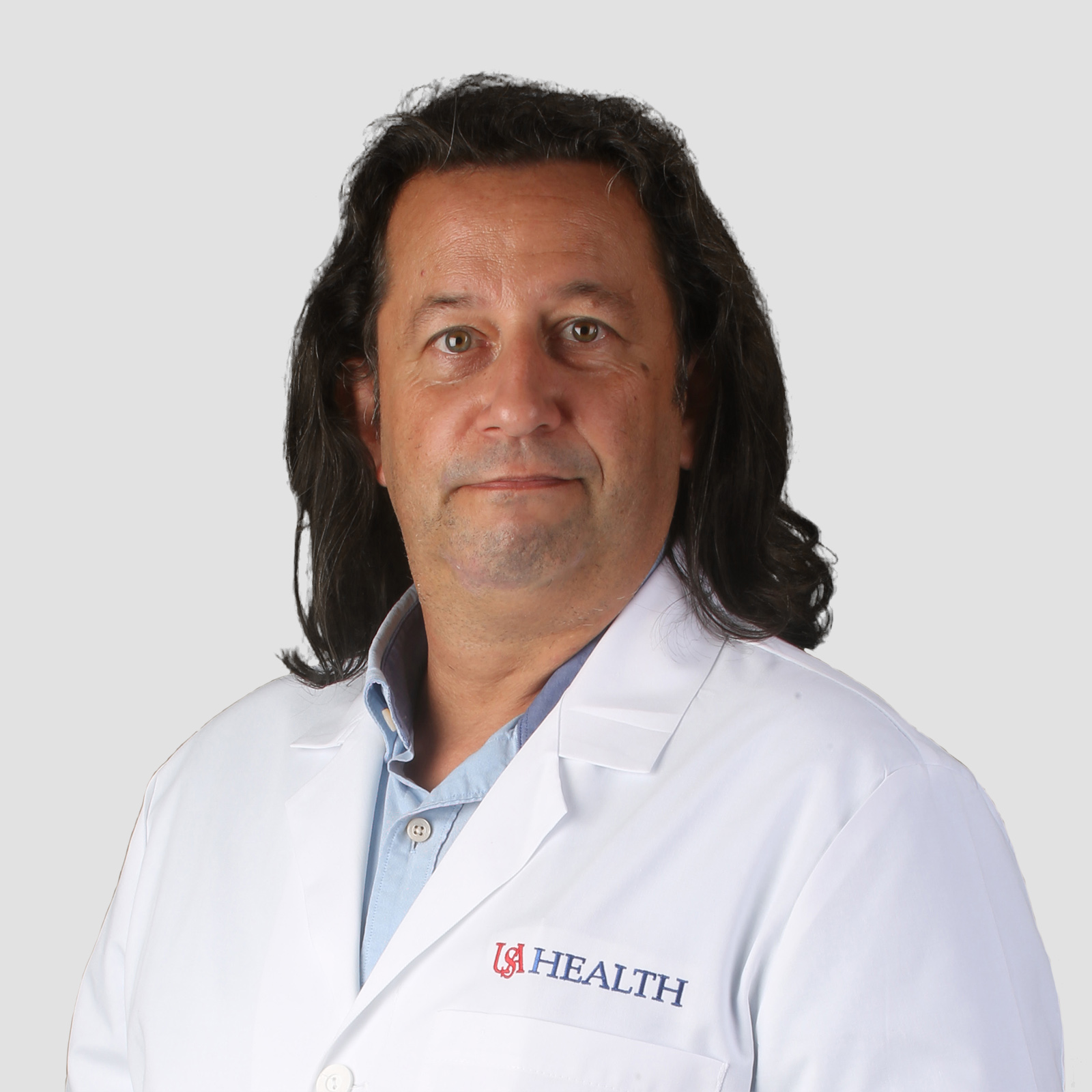
Olivier Darbin, Ph.D.
Director of Translational Research
Assistant Professor of Neurology
Dr. Darbin obtained a M.S. from the University Claude Bernard (Lyon, France) and a Ph.D. from the University of the Mediterranean Aix-Marseille II (Marseille, France) in collaboration with the Institut de Médecine Navale du Service de Sant des Armes (Toulon, France) in 1998. He completed post-doctoral fellowships at the University of Nice (France, 1998-2000), Southern Illinois University (USA, 2000-2004) and the Yerkes National Primate Center (2004-2009). He joined the University of South Alabama 2009.
Dr. Darbin is Assistant Professor of Neurology and Director of Translational Research Core. His specialties are in neurochemistry, electrophysiology and behaviors. He has extensively published on the basal ganglia and the limbic circuitry. His academic focus and research interests are dysautonomia, epilepsy and movement disorders.


